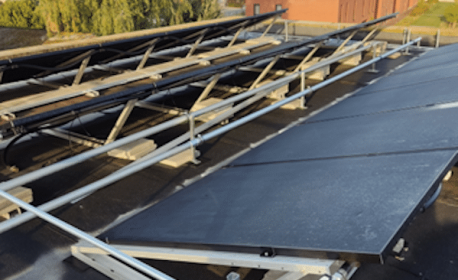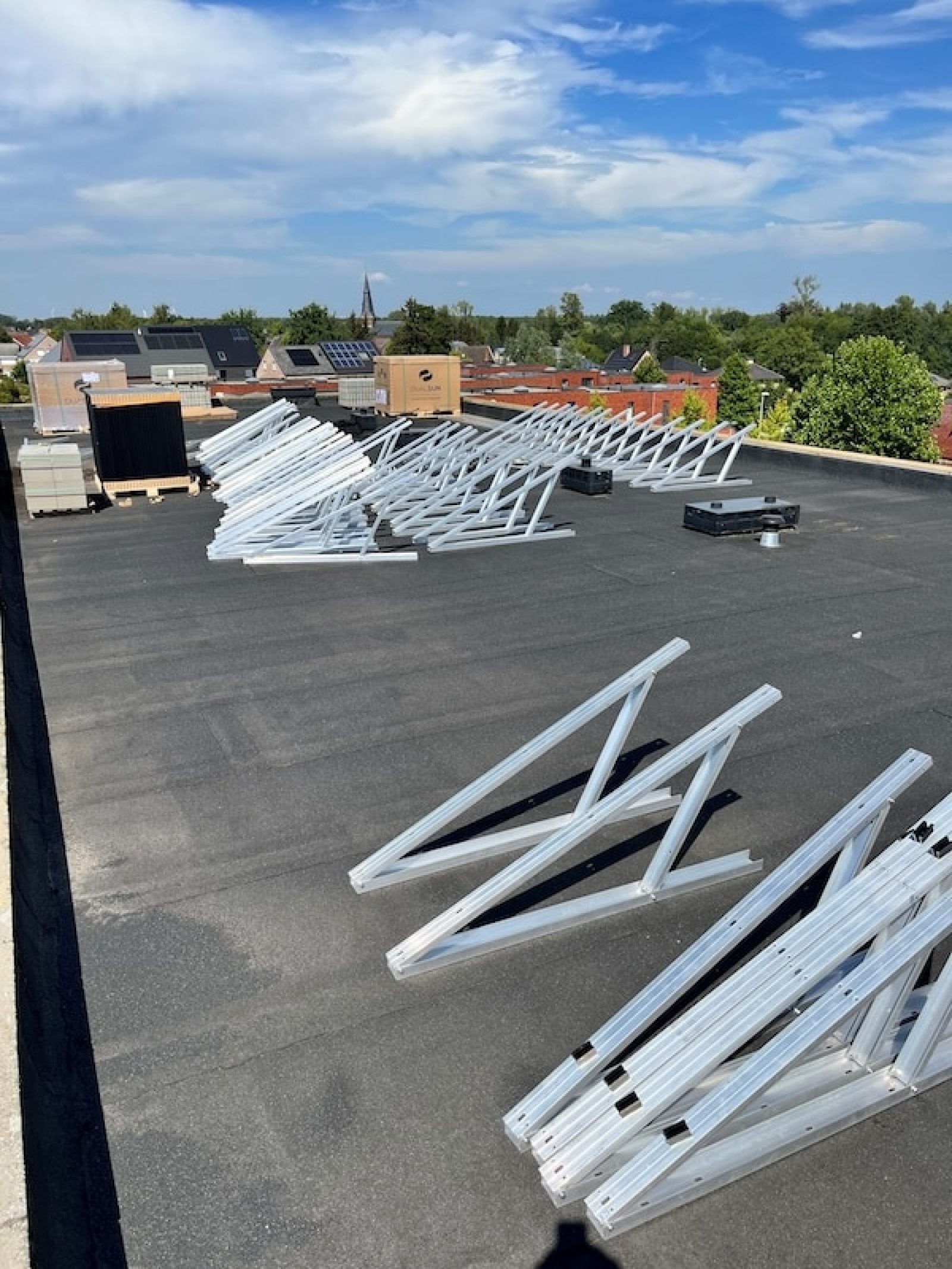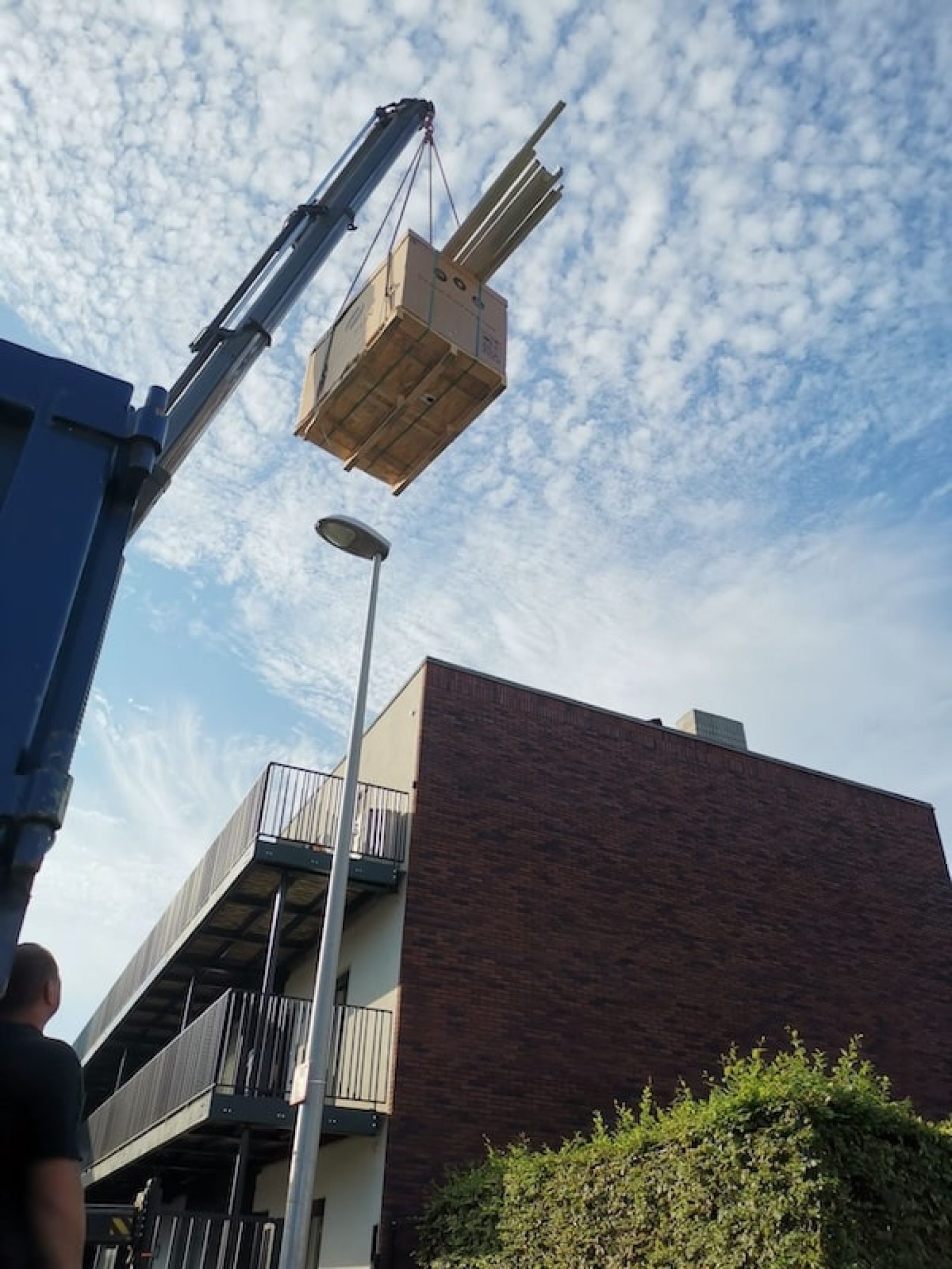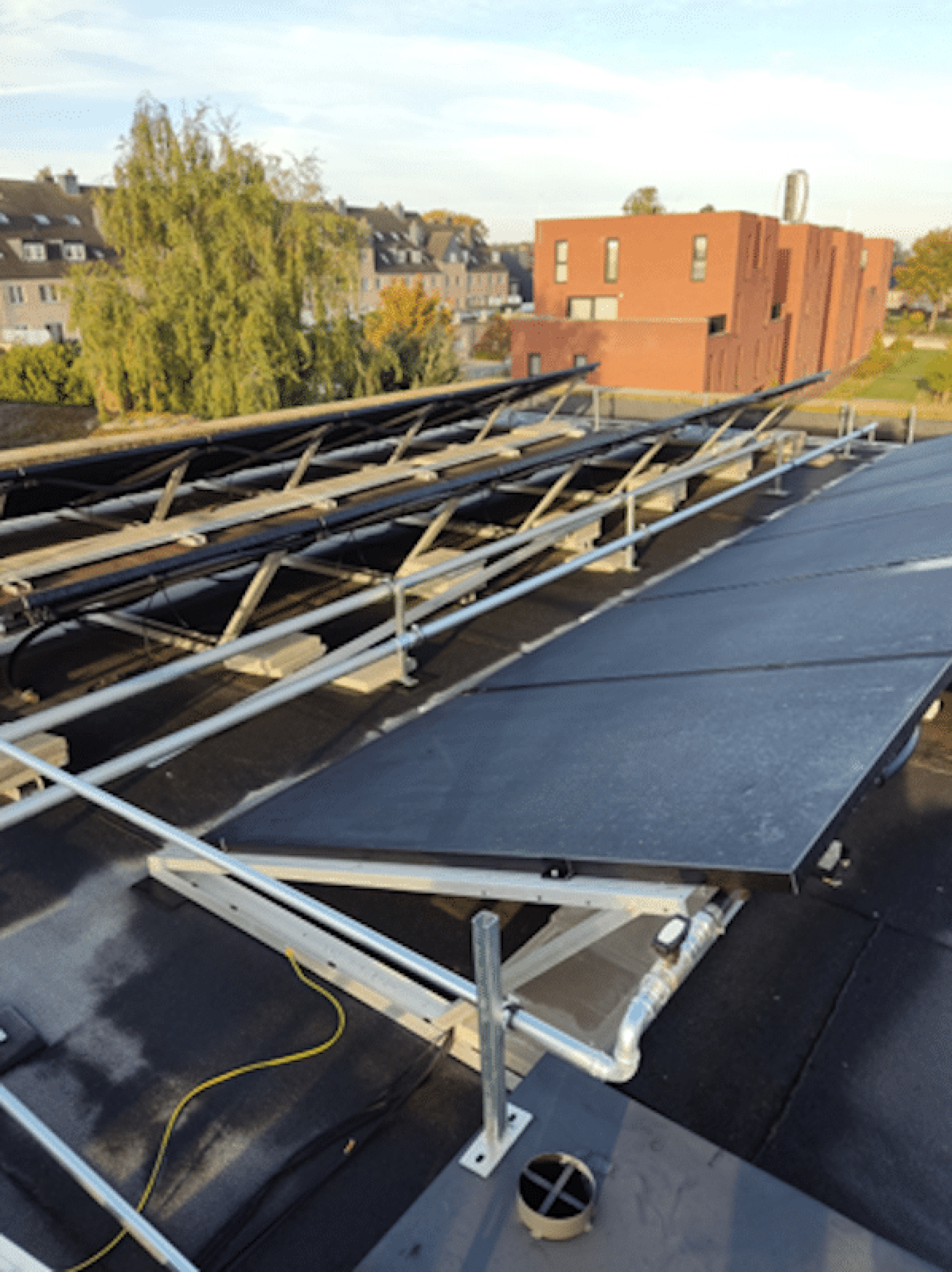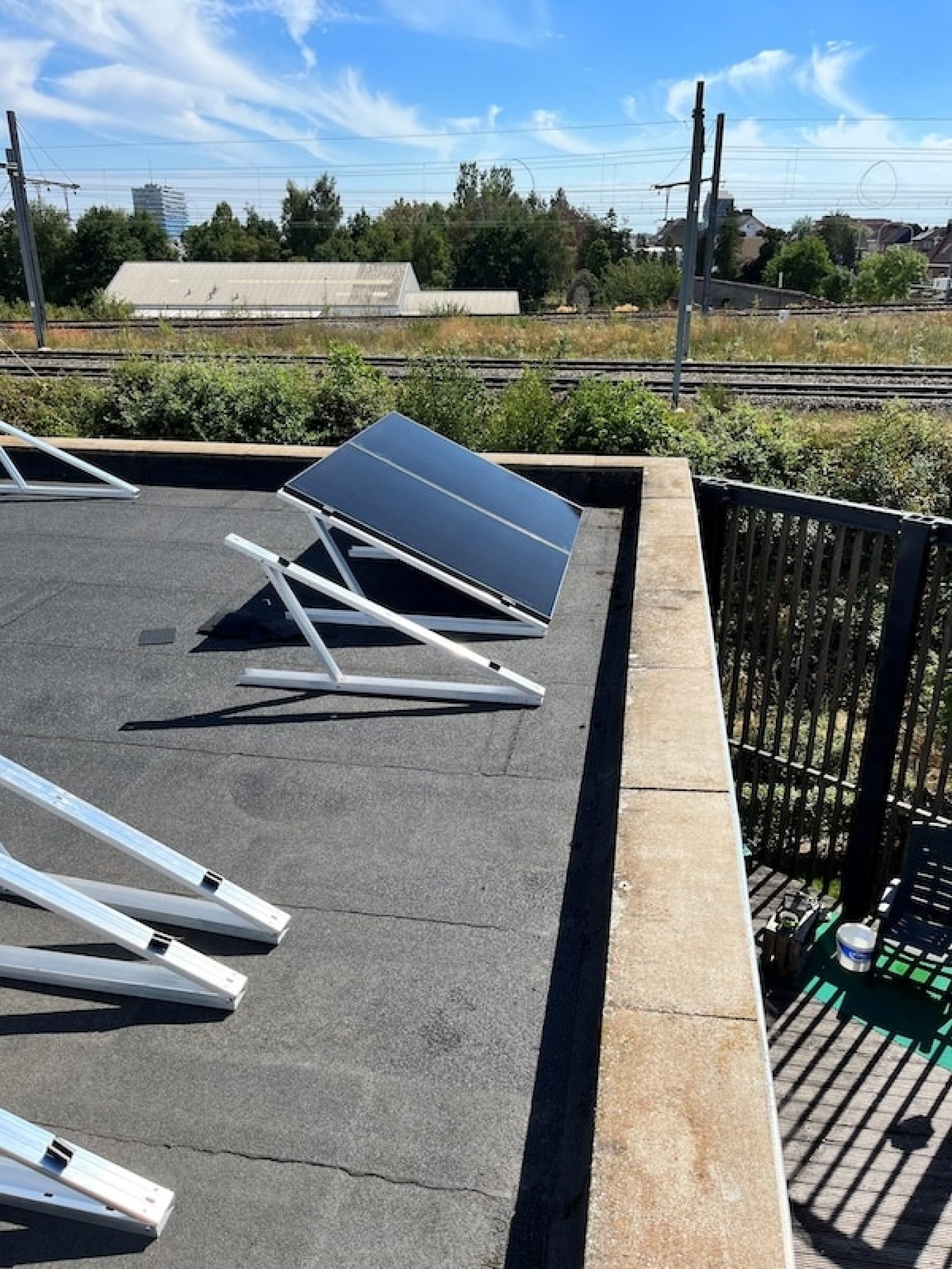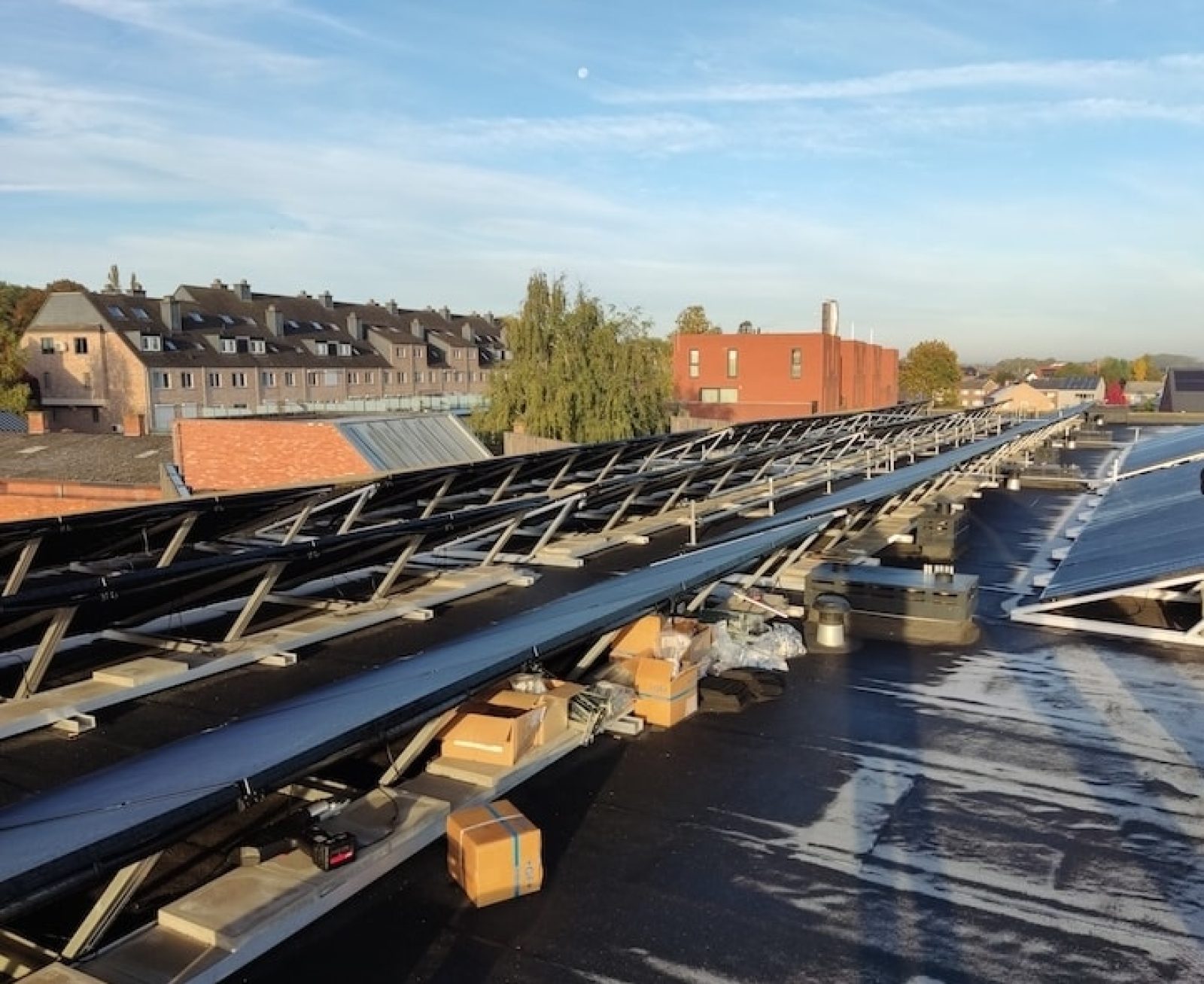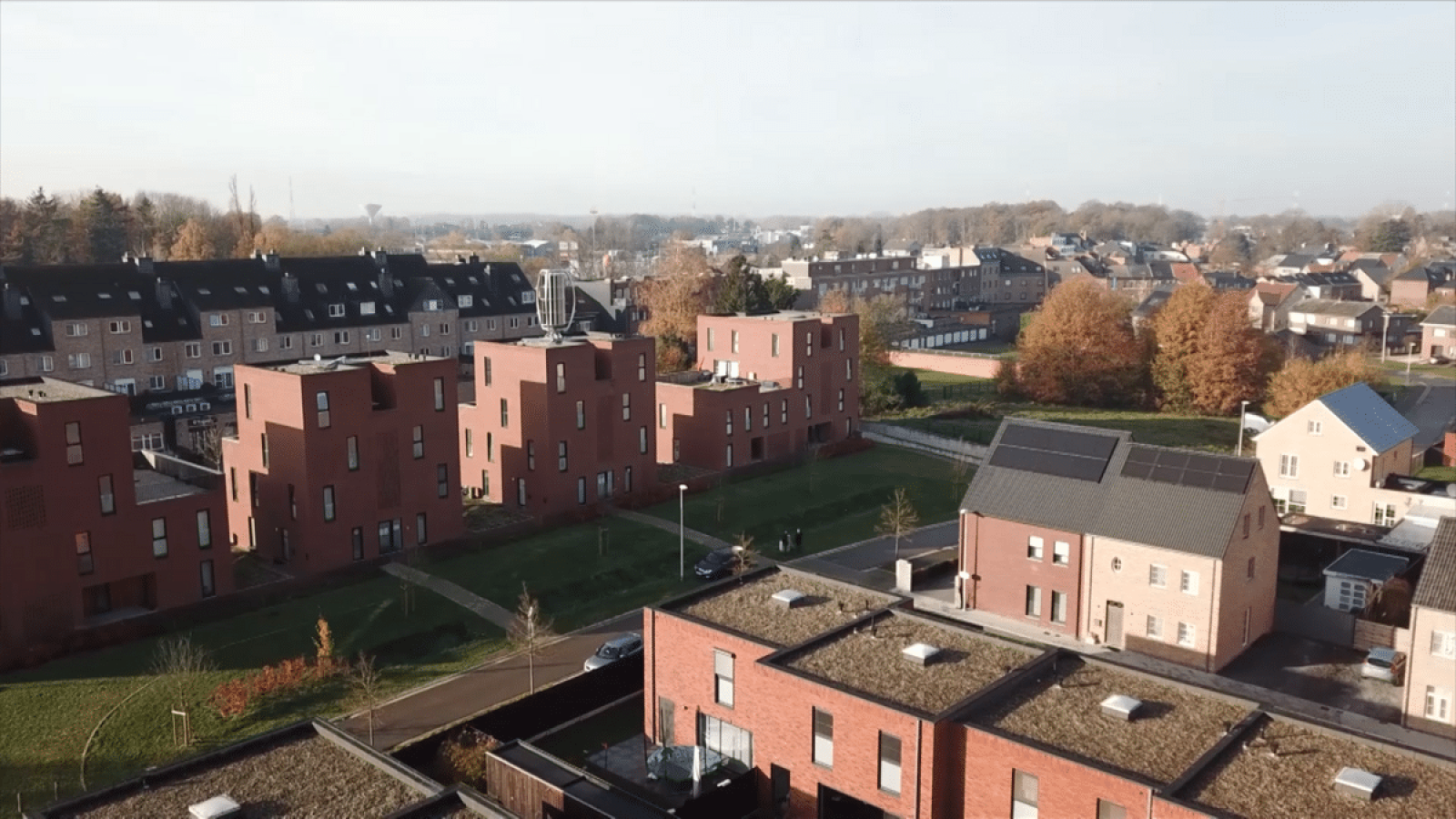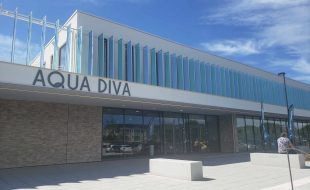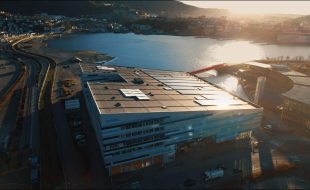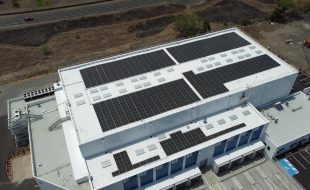This project in photos!
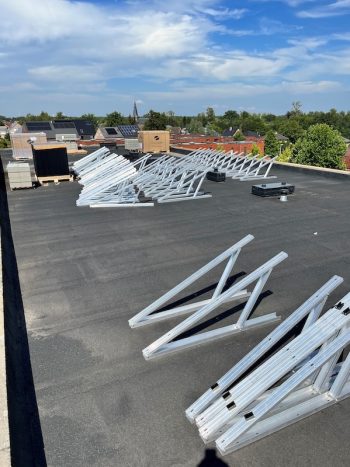
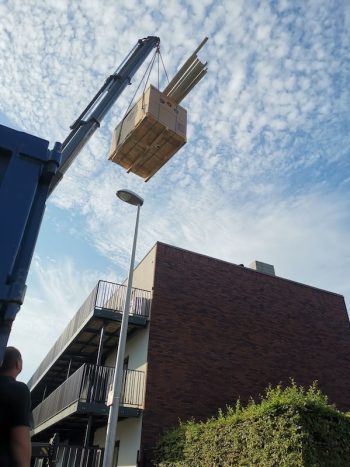
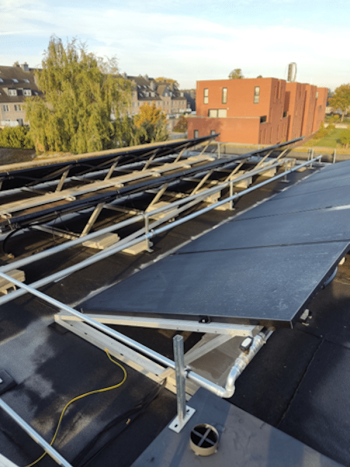
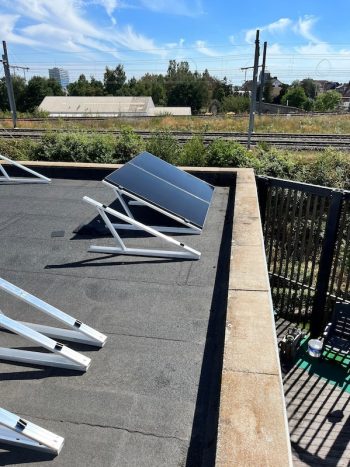
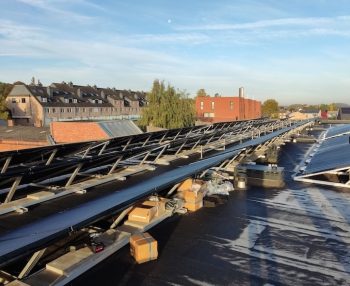
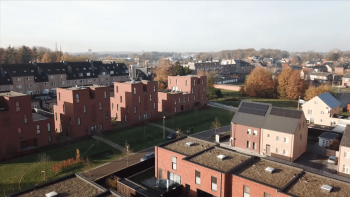

Hasselt: Positive Energy Social Housing Thanks to Hybrid Solar
Located in Belgium, in a climate influenced by the Atlantic and the North Sea, the Hasselt demonstration site is part of a 68-unit social housing complex spanning 2.7 hectares. The objective? Reduce dependence on fossil fuels and offer an accessible, efficient, and sustainable energy model.
The EXCESS project includes 20 apartments, equipped with an innovative centralized energy system that produces, stores, and distributes energy to residents. 84 Dualsun SPRING hybrid panels installed on the rooftops play a key role:
✔️ They generate both electricity and renewable heat.
✔️ Their thermal energy powers geothermal heat pumps, which provide hot water through a local heating network.
✔️ The solar electricity is used for self-consumption, with surplus energy sold back to the grid.
Each apartment is equipped with an intelligent substation that adjusts the precise amount of thermal energy needed, avoiding waste. A Building Energy Management System (BEMS) optimizes the entire setup, synchronizing energy production and consumption.
A Concrete Impact for Residents
The results speak for themselves:
✔️ 43% annual energy savings, thanks to self-consumption and optimized heating.
✔️ A 25% increase in the heat pump’s coefficient of performance (COP), reaching 3.5 on average from May to September.
✔️ A positive energy building, generating 33.8 kWh of surplus energy each year.
Thanks to this system, residents benefit from a more stable and cost-effective energy supply, while significantly reducing their environmental footprint. With a cost only 1.4% higher than a standard air-to-water heat pump + photovoltaic system, this hybrid solution delivers far greater energy efficiency.
A Model for the Future of Energy Renovation
The EXCESS project proves that solar innovation can be successfully integrated, even into social housing. By combining hybrid panels, energy storage, and smart management, Dualsun helps make buildings autonomous and energy-efficient.
Thinking about a solar project? Why not choose a Dualsun solution and enjoy the benefits of clean, renewable energy? 🌞🏡
“Together with the VITO research center, Dualsun was involved in the realization of this positive-energy social housing project, linked by a local heating network. As part of the European EXCESS project, this installation is undeniably a pioneering example of local energy serving to reduce the energy bills of precarious populations, but it’s also a source of pride to have contributed to the technical success of this social impact project, and to be able to extend the benefits of solar energy to those most affected by the volatility of energy prices”.
Laetitia Brottier, co-founder and project manager
